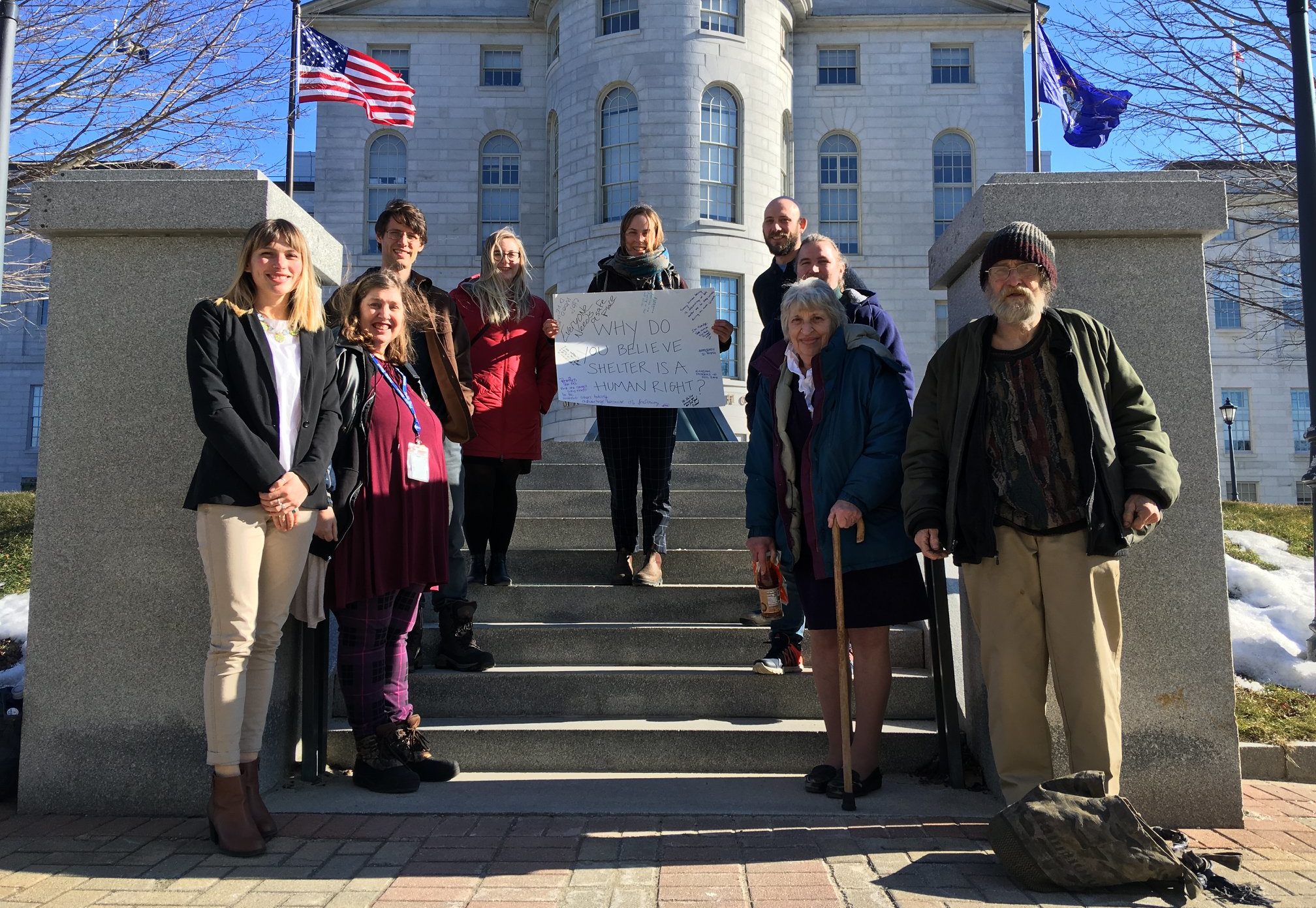Safe, dignified shelter is a human right, yet thousands of Mainers experience unsheltered homelessness on any given night. We need your voice or written statements on Wednesday, February 17 at 10am during a remote, public hearing on LD 211: An Act to Support Emergency Shelter Access for Persons Experiencing Homelessness. This bill seeks to provide $3 million to shelters across Maine to support operations and capacity. To provide written or spoken testimony for this hearing and support increased access to safe shelter in Maine:
- Click here and follow the instructions to provide testimony to the Labor and Housing committee on February 17 on LD 211
- If you wish to speak at the hearing, simply fill out your contact information and check the box next to “I would like to present my testimony live.” To provide oral testimony, register no later than 30 minutes prior to the posted start time of the meeting
- If you wish to submit a written version instead, simply type or upload your testimony into the form and Submit
Committee meetings may be heard at mainelegislature.org or viewed at youtube.com/mainestatelegislature.
Why does this shelter funding matter?
People without shelter face devastating consequences, including a life expectancy of 28 years less than their housed counterparts. According to the National Alliance to End Homelessness:
- 84% of people who are homeless and unsheltered experience physical health conditions, compared to 19% of people who are homeless and sheltered.
- People who are unsheltered go an average 2,632 days — more than seven years — without stable housing, compared to 410 days for people with shelter.
Worse, Maine Equal Justice’s recent report on the state of poverty in Maine illustrates that communities of color disproportionately experience poverty, homelessness, and the effects of Covid-19. In fact, 26% of Maine’s homeless population is Black or African American even though they make up only 1% of Maine’s population. Housing justice is racial justice, and this bill is critical in supporting our unhoused neighbors.

